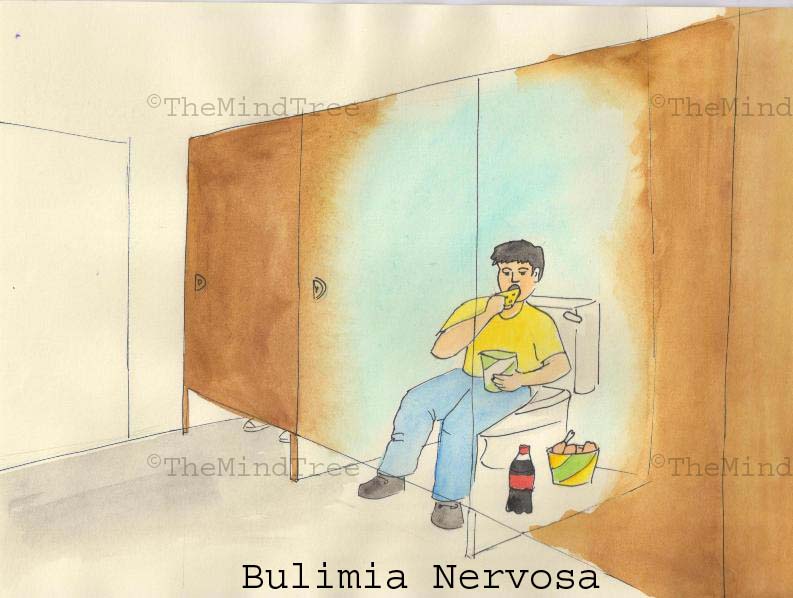Bulimia Nervosa is termed as a deadly eating disorder, because of the abnormally off balance behaviour of the concerned person.
Unlike in anorexia nervosa, where a person starves himself in order to lose weight, here a person is involved in a binge eating, where a person within a discrete period of time intakes food which is much larger than any normal person can eat. They can consume over 3400 calories within an hour, when they have this eating streak.
They lack control in this period of time and these people don’t know how much or what all food they have consumed in this period of time.
To compensate for this eating cycle, they indulge in inappropriate compensatory behaviour like self induced vomiting, fasting, excessive exercising and taking weight losing pills.
Bulimia Nervosa is generally accompanied by depression, anxiety or substance abuse.
For a person to be diagnosed under this disorder they should have done this binge eating at-least once a week for a minimum period of 3 months.
SYMPTOMS
- Recurrent episodes of binge eating
- Can’t stop eating and control what one is eating
- Recurrent compensatory behaviour (self vomiting, diet pills, laxatives exercising abnormally)
- Dehydration
- Sore throat
- Decaying teeth
- Stomach and kidney problems
- Constipation
CASE STUDIES
S B, age 33, consciously refuses coffee and biscuits offered at the clinic. He is anxious as he sits down to converse about his problems, he palms are sweaty and his eyes appear to be reddish. He eats uncontrollably sometimes, where he hides in the bathroom and binges on food. It starts with a few packets of biscuit, then sweets, a whole loaf of bread and cheese after a few minutes the whole fridge bears a deserted loo. He eats even after the point where food starts tasting like mud and often doesn’t remember what he is eaten, during the period of time. He self vomits, eats diet pills and exercises at odd times in the day. He indulges in this binge eating atleast 2-3 times in a week, and as a result suffers from constipation and diarrhoea. He recalls that one night he felt so disgusted after one of his binge eating sessions, that he went out for a 4 hour walk at 2 AM in the night. He hides and eats in washrooms, terrace or in his car. He feels ashamed and embarrassed when he discovers the amount of food he has eaten. His episodes of binge eating started 4 months back. His medical history reveals he has sought treatment for depression in the past, due to disturbing childhood memories.


